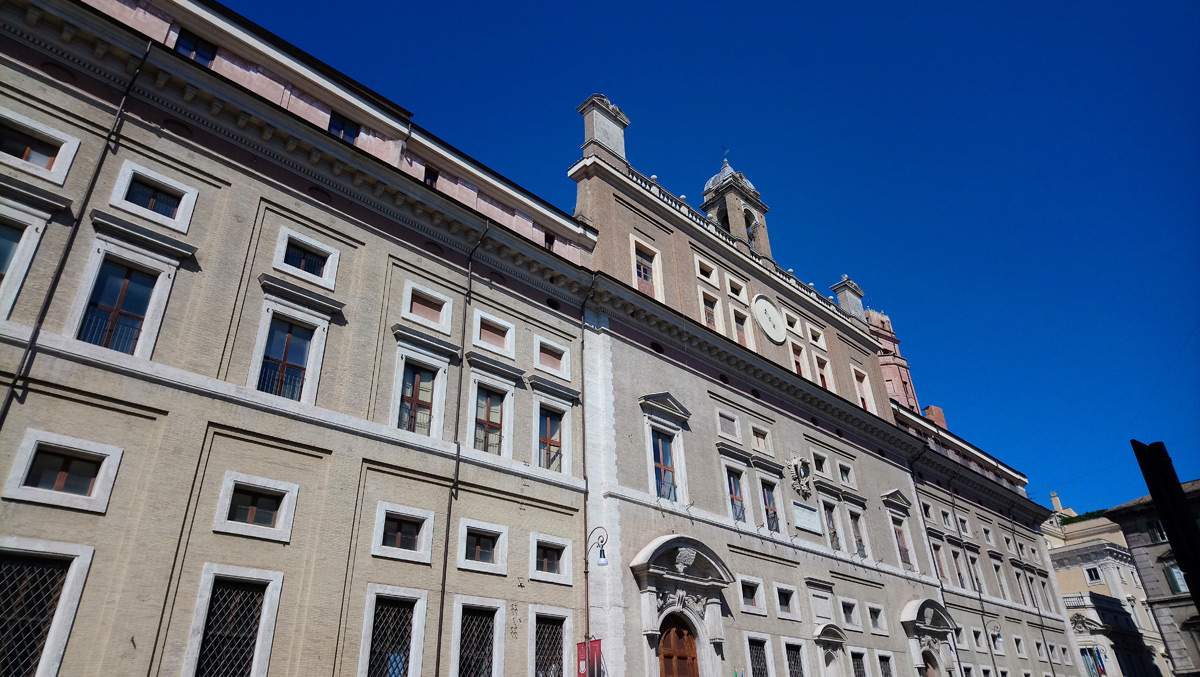Franceschini, new programmatic lines: 'Priority to organic gaps and cultural diplomacy'
Minister Dario Franceschini, at a joint hearing of the culture committees of the House and Senate this afternoon to explain, outlined the programmatic lines of the Ministry of Culture under the Draghi government. Culture, the minister said, “must remain at the center of the country’s political and economic agenda. When I was first appointed minister of cultural heritage, I said that culture is the most important economic ministry in the country, and this is true even without tourism, because culture also has an impact on the country’s image and attractiveness, we then talk about the contemporary, culture in the digital age, creative cultural industries, sectors that are growing strongly. Investments in culture are a constitutional duty and are investments for the development of the country.”
One of the first goals, the minister said, is to affirm Italy’s international role in culture, namely cultural diplomacy. Italy was the first country to organize the G7 of culture (in Florence in 2017) and, the minister said, will soon organize a G20 of culture on topics such as the fight against illicit trafficking, culture as a tool for dialogue, interventions with respect to natural disasters, and the centrality of cultural policies in the economic choices of countries: “We will try to bring the G20 countries on a document in common that will give an important direction in the coming years,” the minister anticipated.
The second theme is the strengthening of the ministry: it is a matter of completing organizational reforms, also as a result of the tourism spin-off, to finish what has been started on superintendencies, the national museum system, archives and libraries. Franceschini said that it is necessary to imagine measures that do not limit or circumscribe the protection of land and heritage but that allow for accelerated mechanisms that will enable the country, in total respect for the constitutional requirements of protection, to speed up the time it takes to implement the Recovery works.
There is also, by the minister’s own admission, a “big staffing problem that is not only of the MiC, it is of all ministries, but in the case of the MiC there are 6,700 staffing shortages out of about 18,000: we need to intervene on this,” Franceschini said. Some competitions already in the pipeline have been blocked for Covid, but the MiC, the minister let it be known, is reasoning on how
Then there are legislative initiatives to be pursued: specifically the Entertainment Code (to also introduce some protections for workers in the sector: through the provision of emergency grants, the 600 and 1.000 euros granted to professionals in the sector, the ministry has been able to collect a registry of all entertainment workers, which did not exist before, and which will make it possible to address the issue of regularization and protection of these workers knowing exactly what basis we have) and the Law for the Book, a regulation on the entire publishing sector, which on the model of the law for the cinema helps the entire sector.
Again, an intervention that the minister believes must be central to the country’s strategic choices is that for the creative cultural industries: “We have dedicated a large part of our legislation and our parliamentary and ministerial activity,” Franceschini said, “to protecting the heritage that previous generations have left us. We have done well to do so, we are an excellence in the world, we must continue to do so without relenting, but we have devoted little time to investing in the present. In the ministry, a directorate has recently been created called Contemporary Creativity and it deals with all those areas that either have not been followed, or have been followed marginally in the activities of the state (contemporary art, contemporary architecture, fashion, photography, design). I believe that from this point of view we have to combine protection on the past with an investment in the present and the future, also because the intersection between the digital age and the opportunities of the Web and Italian creativity offers enormous opportunities.”
Again, according to the minister, it will be important to focus on digitization: a new institute, the Digital Library, has been created in the MiC, which aims at a major digitization of all our cultural heritage. Systematizing this data in a Digital Library, according to the minister, “puts the Italian state in a position to discuss with anyone (private or public in the world) from a position of strength because no one in the world has as much digitizable data and information as our country has.”
Finally, the last theme, strengthening the connection between the MiC and the school and university, on a model of territorial collaborations similar to that of polyclinics in the health sector, where universities and hospitals collaborate and gain mutual benefits (students can practice in the hospital and hospitals benefit from updates, information and new energy). “Where there are faculties or degree programs or graduate schools related to cultural heritage, and in the territories there is always a superintendency or a museum,” Franceschini said, “it will be necessary to create forms of collaboration that give young people graduating in the sector the opportunity on the one hand to experiment and see in practice what they have studied from a theoretical point of view, and on the other hand to bring innovation and research.”
Pictured: the Collegio Romano, headquarters of the Ministry of Culture. Ph. Credit Finestre Sull’Arte
 |
| Franceschini, new programmatic lines: 'Priority to organic gaps and cultural diplomacy' |
Warning: the translation into English of the original Italian article was created using automatic tools. We undertake to review all articles, but we do not guarantee the total absence of inaccuracies in the translation due to the program. You can find the original by clicking on the ITA button. If you find any mistake,please contact us.




























